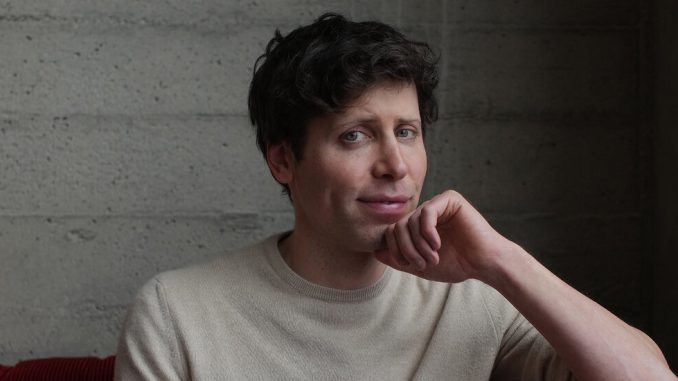
OpenAI said on Friday that Sam Altman, its high-profile chief executive, would rejoin its board of directors more than three months after he was briefly pushed out of the company.
The move caps a highly anticipated report by a law firm hired by OpenAI’s board of directors to investigate Mr. Altman and his sudden removal from the company in November. A current board member, Bret Taylor, said the report was complete during a news conference on Friday afternoon, but the company did not release the report.
“The special committee recommended and the full board expressed their full confidence in Mr. Altman and Mr. Brockman,” Mr. Taylor said, referring to Greg Brockman, the company president who quit in protest after Mr. Altman was removed. “We are excited and unanimous in our support for Sam and Greg.”
The company said that the report found that OpenAI’s board acted within its broad discretion to terminate Mr. Altman, but also found that his conduct did not mandate removal. Mr. Taylor said the company would continue to expand its board.
Mr. Altman returned as chief executive just five days after being pushed out and agreed to an investigation of his behavior and the board’s actions. Two members who voted for his ouster agreed to step down; their replacements, from outside the company, oversaw the investigation by the law firm, WilmerHale.
OpenAI also moved to address concerns about a lack of diversity on the board by adding three women as directors: Sue Desmond-Hellmann, the former chief executive of the Bill & Melinda Gates Foundation; Nicole Seligman, the former general counsel of Sony; and Fidji Simo, the chief executive of Instacart.
(The New York Times sued OpenAI and Microsoft in December for copyright infringement of news content related to A.I. systems.)
With the report and the additions to the board, OpenAI’s leadership hoped to move past the controversy of Mr. Altman’s ouster. The incident, which threatened the future of the company, raised myriad questions about his leadership and the company’s unusual structure — a nonprofit board that oversees a for-profit company.
Because it has not released the report, OpenAI has left many questions unanswered about the San Francisco company. Some insiders have asked whether Mr. Altman had too much control over how the investigation was handled.
“As we told the investigators, deception, manipulation, and resistance to thorough oversight should be unacceptable,” Helen Toner and Tasha McCauley, the two OpenAI board members who agreed to step down last year, said in a statement. “We hope the new board does its job in governing OpenAI and holding it accountable to the mission.”
OpenAI, which was valued at more than $80 billion in its latest financing round, sits at the forefront of generative A.I., technologies that can generate text, images and sounds. Many believe that generative A.I. could transform the technology industry as thoroughly as the web browser did about three decades ago. Others worry that the technology could cause serious harm, helping to spread online disinformation, replacing countless jobs and maybe even threatening the future of humanity.
After OpenAI released the online chatbot ChatGPT in late 2022, Mr. Altman became the face of the industry’s push toward generative A.I. About a year later, the board unexpectedly dismissed him, saying it no longer had confidence in his ability to run the company.
The board had shrunk to six people: three founders and three independent members. Along with the three outsiders, one of the founders, Ilya Sutskever, who is the company’s chief scientist, voted to remove Mr. Altman, saying without providing specifics that he had not been “consistently candid in his communications.”
Mr. Brockman, another founder, resigned from the company in protest. Days later, Dr. Sutskever said he regretted his decision to remove Mr. Altman and effectively stepped down from the board, leaving three independent members standing in opposition to Mr. Altman.
OpenAI was founded as a nonprofit in 2015, before Mr. Altman created a for-profit subsidiary three years later and raised $1 billion from Microsoft. The board of the nonprofit, whose stated mission is to build A.I. for the benefit of humanity, maintained complete control over the new subsidiary. Investors, including Microsoft, had no legal say in who ran the company.
In an effort to resolve the turmoil and return Mr. Altman to the company, he and the board agreed to replace two members with Mr. Taylor, who is a former Salesforce executive, and Lawrence H. Summers, the former Treasury secretary. Mr. Taylor and Mr. Summers were charged with overseeing the investigation into Mr. Altman and his dismissal.
The new board faced criticism from corporate governance experts because of its lack of diversity. Mr. Taylor told The New York Times in November that he would fill out the board by adding “qualified, diverse candidates” who were “a representative group of people that really represents the fullness of what this mission represents, which is going to span technology, A.I. safety policy.”


Be the first to comment